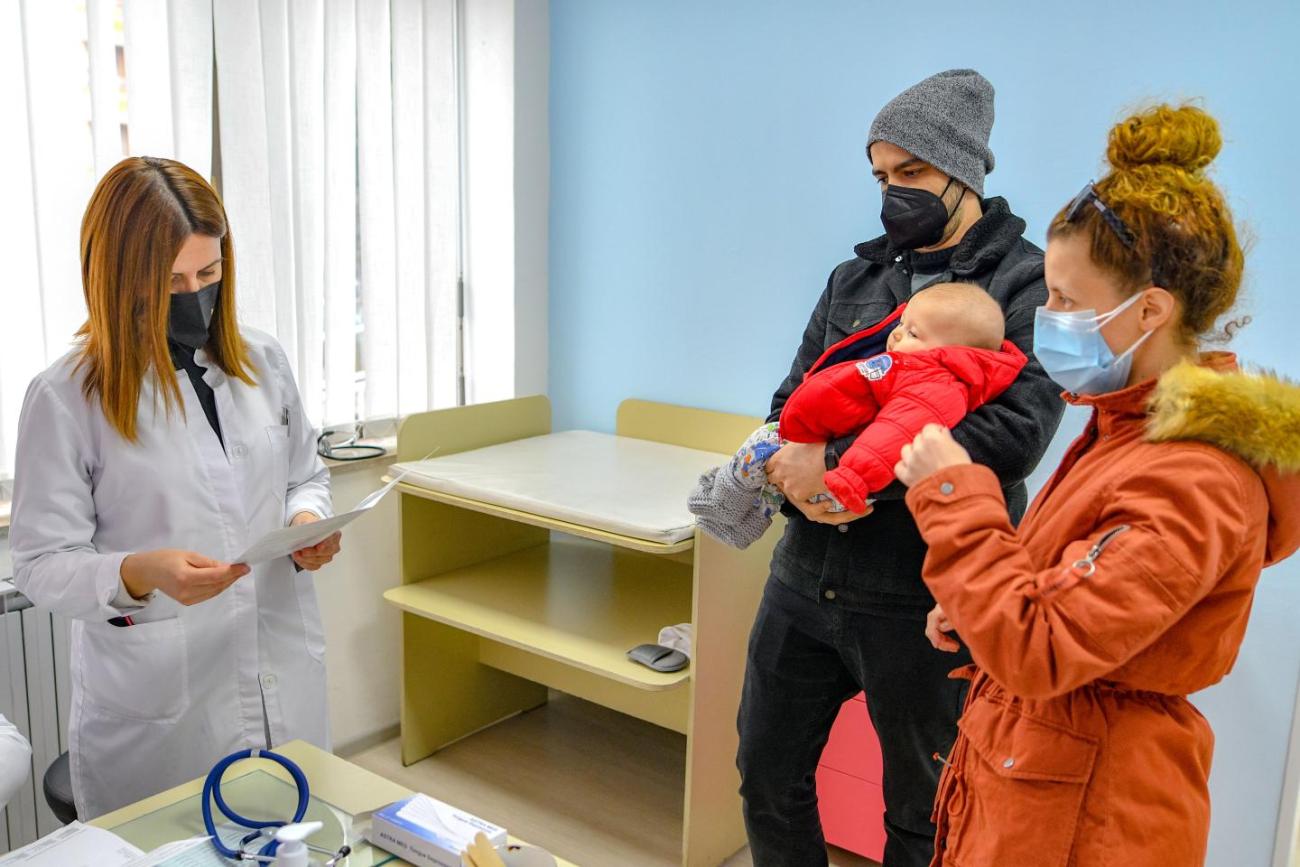Health workers join efforts to ensure parents get trusted information on childhood immunization

Good interaction between health workers and caregivers can mean the difference between a child being fully immunized or not at all.
Skopje, 26 April 2022: UNICEF and the Ministry of Health in partnership with the Macedonian Medical Association and the Macedonian Association of Nurses and Midwifes are supporting a series of training workshops to build the knowledge, skills and attitudes of frontline healthcare workers to communicate effectively with parents and caregivers on childhood immunization.
Global research shows that the quality of the interaction between health workers and caregivers is a key factor in ensuring completion of the vaccination schedule, particularly with hesitant parents. Frontline health workers are among the most influential sources of information in vaccine behavior and are a crucial bridge between the communities they serve and the health services they provide and support. With this role and position, practicing good interpersonal communication is a key to ensuring parents have trusted information which is a key driver to improving immunization coverage.
Recent UNICEF research of self-efficacy, attitudes and perceptions of healthcare workers on routine immunization of children in North Macedonia shows that in the last 24 months vaccination teams have experienced hesitation of parents for vaccination of their children (31%). The research also indicates that interpersonal communication on immunization has become more challenging. Yet, at the same time, the vast majority of caregivers of young children cite health workers as their primary source of information about immunization. The training is designed to close the gap so that health workers not only provide accurate information about vaccines but also communicate to build trust, show empathy and understanding of parents’ concerns.
In addition to supporting health workers to recognise different types of vaccine hesitancy and provide them with tips on how to give personalised advice to parents so that they can make informed decisions to keep their child protected, the training is designed in a way that addresses knowledge gaps amongst health workers. It focuses on four main areas:
- define and apply key principles of interpersonal communication to communicate about immunization with caregivers of children under 5;
- learn and practice skills to listen and engage in conversations aimed at increasing uptake of vaccines;
- improve health workers’ confidence and ability to effectively respond to caregiver needs and concerns regarding vaccine safety and effectiveness, based on evidence, and
- use dialogue-based communication to increase immunization rates reach.
UNICEF has so far supported 10 workshops reaching out 244 frontline health workers. By the end of the year, it is expected that a cohort of 1,000 health professionals will be equipped with knowledge and skills to practice good interpersonal communication on routine immunization.
The Interpersonal Communication for Immunization Participant training modules and participants manual have been developed by Johns Hopkins Center for Communication Programs and UNICEF Europe and Central Asia Regional Office.

